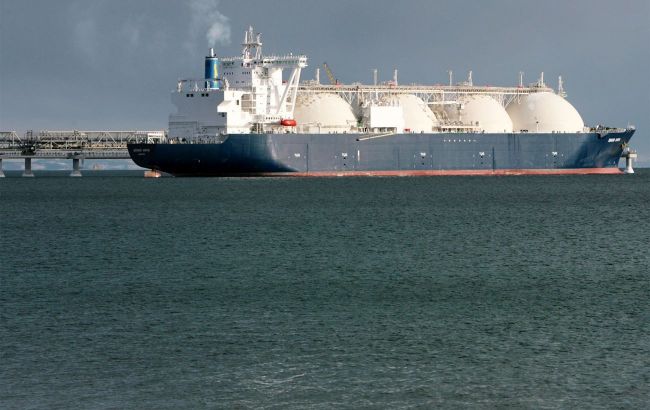EU prepares sanctions regarding Russian exports of liquefied natural gas
 In the EU, discussions are ongoing regarding restrictions on the export of LNG (liquefied natural gas) from Russia (photo: GettyImages)
In the EU, discussions are ongoing regarding restrictions on the export of LNG (liquefied natural gas) from Russia (photo: GettyImages)
European Union countries are seeking to assess potential sanctions against Russia over the war in Ukraine, particularly regarding restrictions on liquefied natural gas (LNG) exports, according to Reuters.
It is noted that EU countries will need weeks to develop the next set of sanctions against Russia. According to European diplomats, they generally support measures, including restrictions on Russian LNG exports, which could be imposed for the first time.
Countries including Belgium, Germany, and France have asked the European Commission to assess whether a ban on LNG transshipment in European ports would hit the Russian economy harder than the EU economy.
As one EU diplomat told Reuters, there is broad support, but mainly questions. He added that the relevant package is being discussed, as nothing similar has been done before, referring to restrictions on LNG.
Preparation of the 14th package of EU sanctions
Diplomats say they are trying to finalize the 14th package before Budapest takes over the EU presidency in July. It is worth noting that Hungarian Prime Minister Viktor Orban had previously tried to block aid to Ukraine and restrictions on Moscow.
Currently, EU diplomats are discussing whether companies from the bloc should be held accountable for their distributors in third countries, although they are concerned about excessive bureaucratic hassle that could harm companies following previous measures requiring contracts to include a ban on re-exports to Russia.
Additionally, EU countries are discussing a separate package to coordinate sanctions against Belarus with further restrictions on Russia and to close a big loophole that allowed many EU goods to reach Russia through Belarus.
Import of Russian gas to Europe
Earlier, EU Energy Commissioner Kadri Simson stated that the European Union could impose sanctions on Russian LNG. She added that restrictions on importing natural gas from Russia are currently not planned.
Last year, the share of Russian gas in the EU was 15%, while in 2021, this figure was around 45%. As a result, gas imports from Russia to the EU decreased by 71% since 2021.
Meanwhile, the contract for the transit of gas from Russia through Ukraine, signed at the end of 2019 between NJSC Naftogaz of Ukraine and Gazprom, expires on December 31, 2024. Ukraine has already stated that it will not extend the agreement.
For more information on the transit of Russian gas, read the article by RBC-Ukraine.

